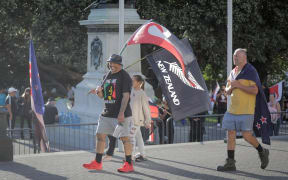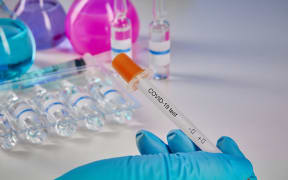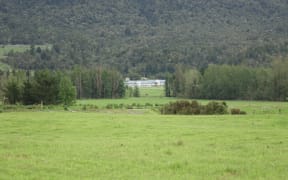Prime Minister Jacinda Ardern today is the start of a nationwide booster drive, with an extra 1 million New Zealanders being urged to get their third shot.
At her post-Cabinet briefing, Ardern said Omicron cases are growing but this is not unexpected, and vaccinations are helping slow the spread of the virus.
"Two weeks into our Omicron outbreak we have a three-day rolling average of around 200 cases, lower than many of the predictions."
She said we are now seeing a similar level of cases as the peak of the Delta outbreak but hospitalisation rates are much lower.
With about 51 percent of those eligible now boosted, she encouraged more uptake, saying: "it was two shots for Delta, and three for Omicron".
Today was the start of the "big boost week" she said, with more than 150 sites open in Auckland.
From today, the extra million people who became eligible on Friday would begin receiving text message or email alerts.
"Boosters are the most important determinant of how we will weather the Omicron storm."
Ardern said as announced today, $400,000 would be allocated to the rural support agencies and those supporting Māori agribusiness to help prepare for Covid in the rural setting.
In response to a question, she said the funding for rural support was getting ahead of the problem, rather than dealing with current spread.
Asked if lockdowns were still on the table, Ardern said with the tools the government has, it lessened the need for them. She said the government had also made a deliberate decision to begin reopening from the end of February because that would give time for more than 90 percent of eligible New Zealanders to have access to a booster.
Asked about modelling released by Te Pūnaha Matatini today, she said much of what the government was using was scenario planning rather than "accurate forecasting", and uptake of the booster would be the main determining factor in slowing the outbreak.
"It's not out of our hands. We do have some control over what happens next," the prime minister said in regard to different modelling scenarios.
She said the country needed to prepare for low and high-case scenarios, and with Delta the government had stress-tested DHBs last year ahead of summer, which would help inform the country's preparedness for Omicron.
On waning immunity, research suggested a shorter window in decreasing the likelihood of passing the virus on, but the vaccine's ability to prevent severe disease lasted much longer, she said.
Covid-19 Response Minister Chris Hipkins said the best preparedness for the health system was doing everything possible to prevent severe disease in the first place.
He said boosters were important along with things like mask use and adaption based on emerging international evidence.
ICU facilities 'as well prepared' as possible
Ardern said Omicron had tested hospital systems throughout the world.
Hipkins said people working in intensive care units were worried and anticipated coming under increased pressure, but the advice from health professionals was they were ready.
"They deal with peaks in ICU demand, they have to sometimes make decisions about how they best meet that increase ... they are as well prepared as they are able to be but as I think the prime minister and I have both just said, the best way to prevent a huge influx into the health system is to avoid as much as we can having a huge influx of people having to go to hospital."
With testing rates for Covid-19 having fallen recentkly, she said she was encouraged that positivity rates were still sitting at about 2 percent. "That suggests that we aren't missing a large number of cases, but if you're symptomatic, please do get a test."
PM expresses support for Bloomfield over data
Asked if she still had confidence in Director-General of Health Dr Ashley Bloomfield, given he had again refused data to Whānau Ora, she said she absolutely did.
Hipkins said he and Minister Peeni Henare had met on Friday with health providers, iwi and other stakeholders particularly on the provision of vaccinations to tamariki Māori. He said the issue of data was raised, but there were a range of views on the data.
"That if data is used too assertively, that can actually increase levels of hesitancy around vaccination in some of those communities ... it needs to be regular and ongoing and ... Minister Henare and I have made a commitment that we will continue with that dialogue."
He said the connection between health and education was coming up regularly in those conversations. Schools were largely supportive of high levels of vaccination but in some cases had "become the targets of some pretty aggressive and in some cases very nasty anti-vax sentiment".
Ardern said the immunisation programme for children was expected to take some time, possibly more than for adults.
Hipkins said planning is still ongoing for what should happen if many MPs are required to isolate or become sick with Omicron, and how Parliament would operate in those circumstances.
Ardern added that much of what Parliament does can be done virtually without posing risk to one another.
Hipkins said the government was looking at the availability of N95 masks, after the Green Party called for them to be supplied to everyone for free.
Ardern said those on the frontline were now required to wear either surgical or N95 masks, and it was not fair to expect employers to provide those.
She said the criteria for going back down to the orange traffic setting would depend on the readiness of the health system.
"It is too early for us to know what the impact of the health system will be as Omicron increases in its spread, so it is something that we'll keep under constant assessment."
She said once it was believed the country had reached a peak in the outbreak the government would be in a better position to make that assessment.
The prime minister was also asked about the convoy of vehicles that travelled to Parliament today to call for an end to all mandates and Covid-19 restrictions.
She said with 30,000 people having been vaccinated today, the protest did not represent the majority of New Zealanders.
Earlier, Ardern told Morning Report she believes New Zealand's Omicron peak may be in late March.
This morning, hundreds of protesters against Covid-19 vaccine mandates gathered on Parliament grounds and vehicles from the protest convoy blocked a nearby street.






